Picture this: you’re enjoying a lazy Sunday afternoon, feet up on the couch, with the soft breeze from an open window gently caressing your face. It’s an idyllic scene, but suddenly, amidst your daydreaming, a thought jolts you from your relaxed state: do I really need to lock my windows for insurance purposes? It may seem like a trivial inquiry, but the answer could have some serious consequences for your coverage. In this article, we’ll uncover the truth behind this puzzling question and shed light on what locking your windows truly means for your insurance policy.
What is window locking?
Window locking refers to the act of securing windows by using various types of locks to prevent unauthorized access or entry. It is an essential component of home security, as windows are often targeted by burglars due to their vulnerability. By securing our windows with locks, we can enhance the safety and security of our homes.
Different types of window locks
There are several different types of window locks available on the market, each with its own unique features and benefits. Some of the most common types include window sash locks, keyed locks, sliding window locks, and window security film.
Window sash locks are designed for double-hung windows and are installed on the meeting rails to prevent the windows from being opened. Keyed locks, on the other hand, require a key to lock and unlock the window, providing an added layer of security. Sliding window locks are specifically designed for sliding windows and help secure them in a closed position. Lastly, window security film is a transparent film that is applied to the window surface, making it more difficult to break.
Importance of window locks for security
Window locks play a crucial role in enhancing the security of our homes. They act as deterrents for potential burglars, preventing them from gaining easy access to our properties. When windows are left unlocked, they become vulnerable entry points for intruders, compromising the safety of our homes and belongings.
By installing window locks, we significantly reduce the risk of burglary and unauthorized access. This not only protects our valuables but also provides peace of mind knowing that our homes are secure. Furthermore, having window locks in place can also have a positive impact on our insurance policies.
Insurance requirements for window locks
Insurance policies
Insurance policies, especially homeowner’s insurance, often include specific requirements regarding window locks. These requirements aim to minimize the risk of burglaries and break-ins, ultimately reducing the number of claims filed by policyholders.
When obtaining or renewing an insurance policy, it is essential to review the policy documents thoroughly to understand the insurance company’s requirements regarding window locks. Failure to comply with these requirements may result in coverage limitations or even denial of a claim in the event of a burglary.
Specific requirements for window locks
Insurance policies may have specific requirements for window locks, such as the type of lock needed, the number of locks required, and the locations where the locks should be installed. These requirements may vary depending on the insurance provider and the level of coverage chosen.
Common requirements include the installation of window locks on all accessible windows, including ground level, basement, and easily accessible upper-level windows. Often, insurance companies also specify the minimum security rating or standard that the locks must meet.
It is crucial to ensure that the window locks installed in our homes meet or exceed the requirements specified by our insurance policies. Adhering to these requirements not only helps fulfill our obligations as policyholders but also provides us with the benefits associated with having secure window locks.
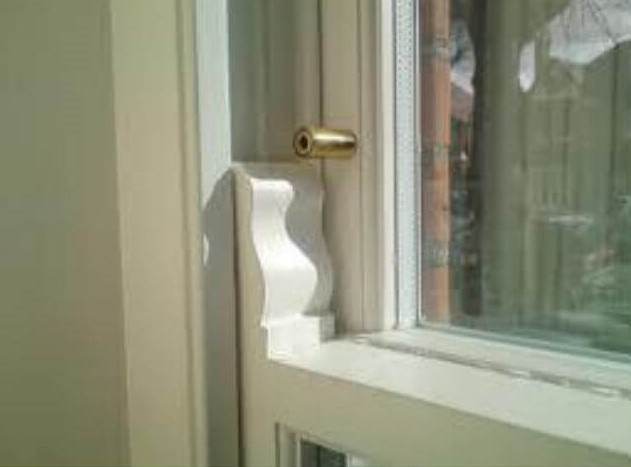
This image is property of www.ikslocksmiths.co.uk.
Benefits of window locks for insurance
Reduced risk of burglary
By having window locks installed, we significantly reduce the risk of burglaries and break-ins. Insurance companies recognize the importance of window locks in deterring potential burglars and reducing the likelihood of a successful intrusion.
When insurance companies see that we have taken steps to secure our windows with reliable locks, they view our homes as less vulnerable to burglary. This reduced risk of burglary can have a positive impact on our insurance coverage and premiums.
Lower insurance premiums
Another significant benefit of having window locks is the potential for lower insurance premiums. Insurance companies often offer discounts or reduced premiums for policyholders who have implemented certain security measures, including window locks.
By investing in window locks and meeting the specific requirements outlined by our insurance providers, we demonstrate our commitment to home security. This proactive approach can result in reduced insurance premiums, as insurance companies view our homes as less risky to insure.
Quicker claims processing
In the unfortunate event of a burglary or break-in, having window locks in place can streamline the claims process. Insurance companies typically require evidence of forced entry or signs of attempted forced entry to validate a burglary claim.
When windows are secured with locks, it becomes more difficult for burglars to gain access to our homes through the windows. This makes it easier to provide evidence of forced entry, leading to smoother and quicker claims processing.
Window locks and home security
Window vulnerabilities
Windows are often considered vulnerable points of entry in homes. Burglars can easily break or force open windows that are not adequately secured, allowing them to gain access to our properties and belongings.
Unsecured windows, especially those on the ground floor or easily accessible upper levels, make it easier for intruders to enter our homes undetected. This puts our personal safety at risk and increases the likelihood of property loss and damage.
How window locks deter burglars
Window locks act as a deterrent for potential burglars by creating an additional barrier they must overcome to gain access to our homes. Most burglars prefer quick and easy targets, and the presence of secure window locks can discourage them from attempting to break into our homes.
When burglars encounter locked windows, it increases the chances of them being caught or drawing attention to their activities. This risk of detection is often enough to deter intruders, encouraging them to seek easier targets elsewhere.
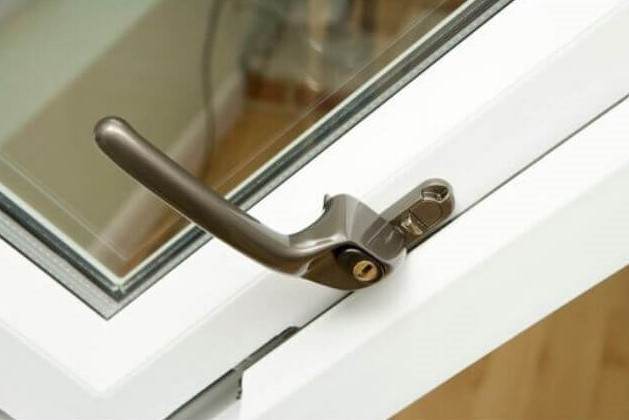
This image is property of www.ikslocksmiths.co.uk.
Types of window locks
Window sash locks
Window sash locks are specifically designed for double-hung windows. These locks are installed on the meeting rails of the windows and prevent them from being opened. Window sash locks are easy to operate and provide a reliable means of securing windows.
Keyed locks
Keyed locks require a key to lock and unlock the window. These locks offer an additional layer of security as they cannot be easily opened from the outside without a key. Keyed locks are available in various styles, including deadbolt locks and cam locks, providing flexibility in terms of installation and functionality.
Sliding window locks
Sliding window locks are designed to secure sliding windows in a closed position. These locks are installed on the frame and prevent the window from sliding open. Sliding window locks are often adjustable, allowing for a snug fit on different window sizes.
Window security film
Window security film is a transparent film that is applied to the surface of windows. While not a traditional lock, it serves as an additional security measure by making the windows more resistant to breaking or shattering. This can deter burglars and buy valuable time for homeowners or authorities to respond to an attempted break-in.
Choosing the right window locks
Security ratings
When choosing window locks, it is essential to consider their security ratings. Window locks typically come with various security ratings based on their effectiveness in preventing forced entry. These ratings indicate the level of resistance the locks offer against attempted break-ins.
It is advisable to select window locks that have received favorable security ratings, as they provide a higher level of protection and meet the requirements set by insurance companies. These security ratings are often determined by testing agencies or organizations specializing in assessing the effectiveness of security products.
Compatibility with window type
It is crucial to ensure that the window locks we choose are compatible with the type of windows we have in our homes. Different window types may require specific lock designs or installation methods. For example, double-hung windows may require window sash locks, while sliding windows may need specialized sliding window locks.
Before purchasing window locks, it is recommended to consult with professionals or experts who can provide guidance on the most suitable lock options for our specific window types. This ensures that the locks we choose will effectively secure our windows and provide the desired level of protection.
Ease of use and maintenance
Considering the ease of use and maintenance when selecting window locks is also important. It is essential to choose locks that are user-friendly and can be easily operated by all household members, including children and elderly individuals.
Regular maintenance of window locks is crucial to their continued effectiveness. Therefore, selecting locks that are easy to clean and maintain can save time and effort in the long run. Additionally, regular inspections should be conducted to ensure that the locks are in good working condition and promptly address any issues that may arise.
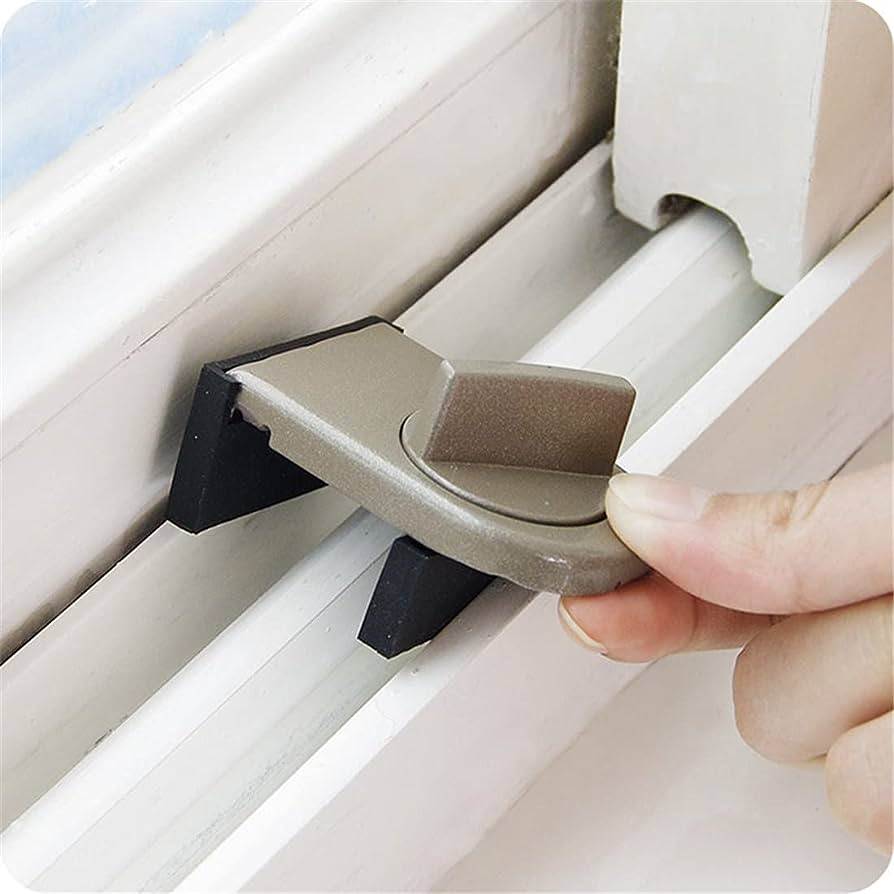
This image is property of Amazon.com.
Installing window locks
Professional installation
While some window locks can be installed as DIY projects, it may be beneficial to opt for professional installation, especially for complex or unfamiliar lock types. Professionals have the expertise and experience to ensure that the locks are installed correctly and securely.
By choosing professional installation, we can have peace of mind knowing that our window locks are properly installed and provide the intended level of security. Professionals can also provide recommendations on the most suitable locks for our specific windows and address any concerns or questions we may have.
DIY installation
For those who prefer a hands-on approach or have experience with DIY projects, some window locks can be installed independently. These locks often come with clear instructions and the necessary hardware for installation.
DIY installation of window locks allows us to have control over the process and can be a cost-effective option. However, it is crucial to follow the manufacturer’s instructions carefully and ensure that the locks are installed correctly to maximize their effectiveness.
Maintaining window locks
Regular inspections and cleaning
Regular inspections of window locks are essential to ensure their proper functionality and effectiveness. It is recommended to inspect the locks periodically, checking for any signs of damage or wear and tear. Any issues identified should be promptly addressed, whether through repair or replacement.
Cleaning the window locks regularly is also important to prevent dirt, debris, or rust from affecting their performance. Simple cleaning can be done using a soft cloth and mild soap, ensuring that any residue or buildup is removed from the locks. Regular cleaning contributes to the longevity and reliability of the window locks.
Repairing or replacing damaged locks
In the event of damaged or malfunctioning window locks, it is necessary to take immediate action to repair or replace them. Damaged locks can compromise the security of our homes, leaving them susceptible to unauthorized access.
Repairing or replacing damaged locks should be done by professionals or individuals with the necessary expertise. DIY repairs or replacements may lead to further damage or ineffective security measures. Seeking professional assistance ensures that the window locks are correctly repaired or replaced, restoring their functionality and providing optimum security.
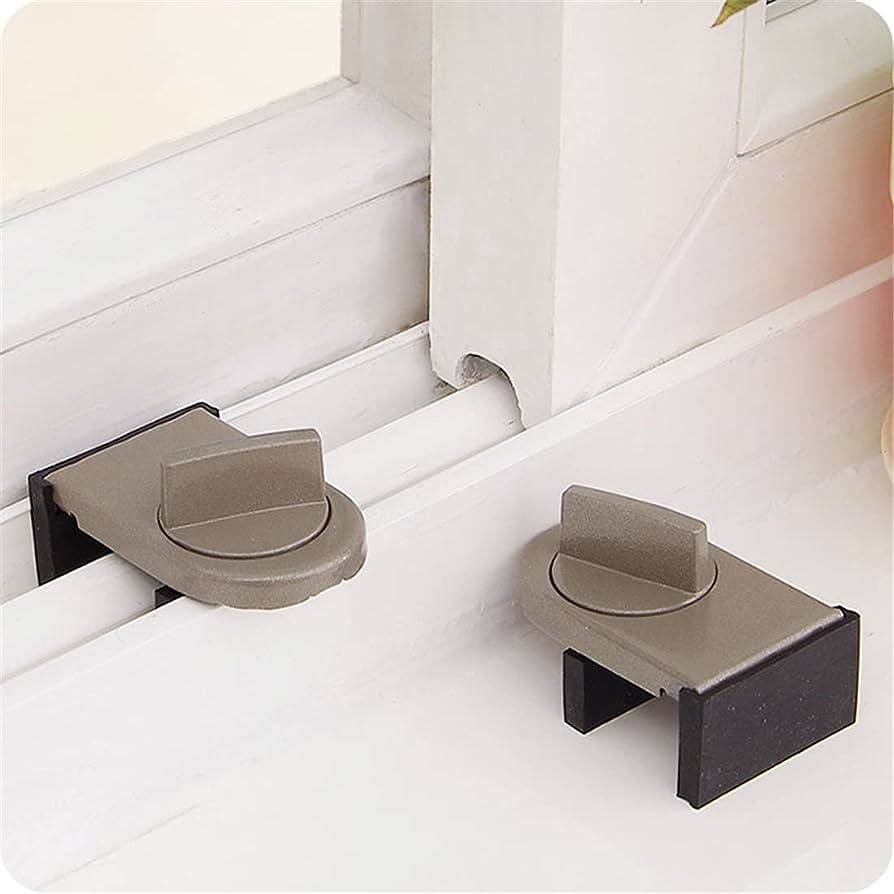
This image is property of Amazon.com.
Exploring other security measures
Additional security devices
While window locks are considered an integral part of home security, they can be complemented by additional security devices. These devices further enhance the safety and protection of our homes, providing additional layers of defense against potential burglaries.
Some examples of additional security devices include window alarms, window bars or grilles, and security cameras. Window alarms alert us to any unauthorized attempts at opening or tampering with the windows. Window bars or grilles can physically prevent intruders from entering through the windows. Security cameras provide surveillance and monitoring, acting as a deterrent and capturing evidence in the event of a break-in.
By combining window locks with other security devices, we create a comprehensive security system that addresses various vulnerabilities and strengthens the overall protection of our homes.
Home security systems
Home security systems offer a centralized and comprehensive approach to home security. These systems typically include various components such as window sensors, door sensors, motion detectors, and surveillance cameras.
Window sensors, in particular, provide additional detection capabilities for our windows. They can detect unauthorized opening or breakage of windows, triggering the alarm system and alerting us and the relevant authorities.
Home security systems provide a high level of security and peace of mind, integrating multiple security measures into a single, interconnected network. They can be customized based on our specific needs and preferences, allowing us to tailor the security system to our homes’ unique requirements.
Conclusion
Window locking is an essential aspect of home security, providing a crucial barrier against unauthorized access or entry. By understanding the different types of window locks available and their benefits, we can make informed decisions about the most suitable options for our homes.
Window locks not only enhance the safety and security of our homes but also fulfill the requirements set by insurance policies. Insurance providers recognize the importance of window locks in reducing the risk of burglary and offer benefits such as lower insurance premiums and quicker claims processing.
Choosing the right window locks involves considering security ratings, compatibility with window types, and ease of use and maintenance. Proper installation, whether through professional assistance or DIY methods, ensures the locks are securely in place.
Regular maintenance, including inspections and cleaning, is vital for the continued effectiveness of window locks. Promptly addressing any issues or damages minimizes the risk of security breaches.
In addition to window locks, exploring other security measures such as additional security devices or home security systems can further fortify our homes against potential burglaries.
By prioritizing window locking and taking proactive steps to secure our homes, we create a safer living environment for ourselves and our loved ones. Investing in window locks as part of our home security strategy is a wise decision that offers both peace of mind and enhanced protection.
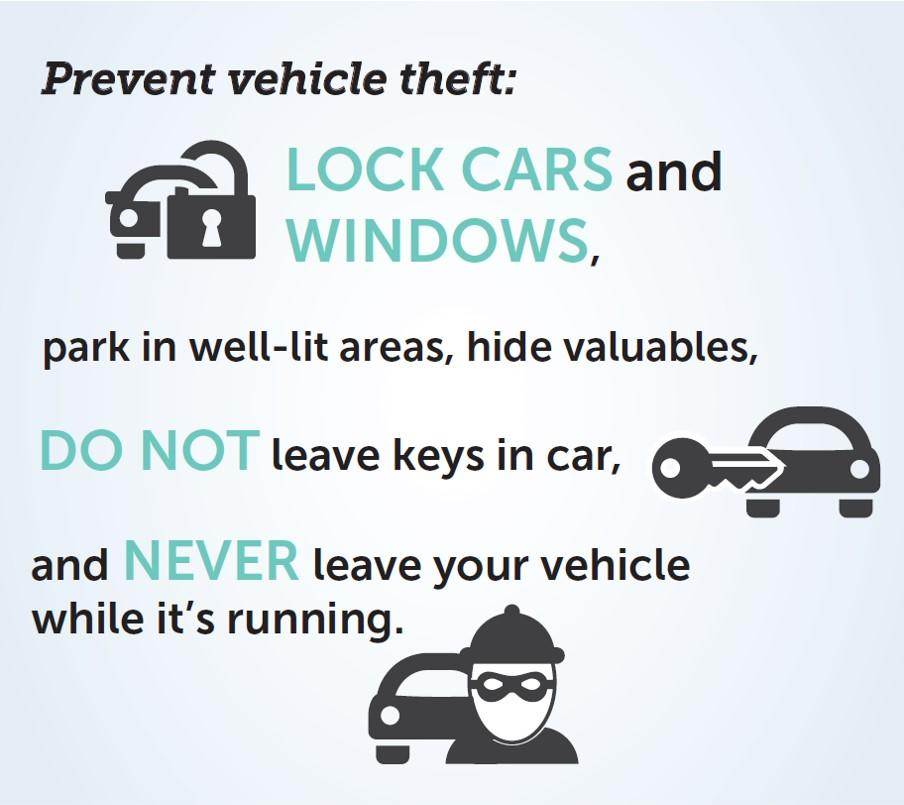
This image is property of www.mass.gov.
